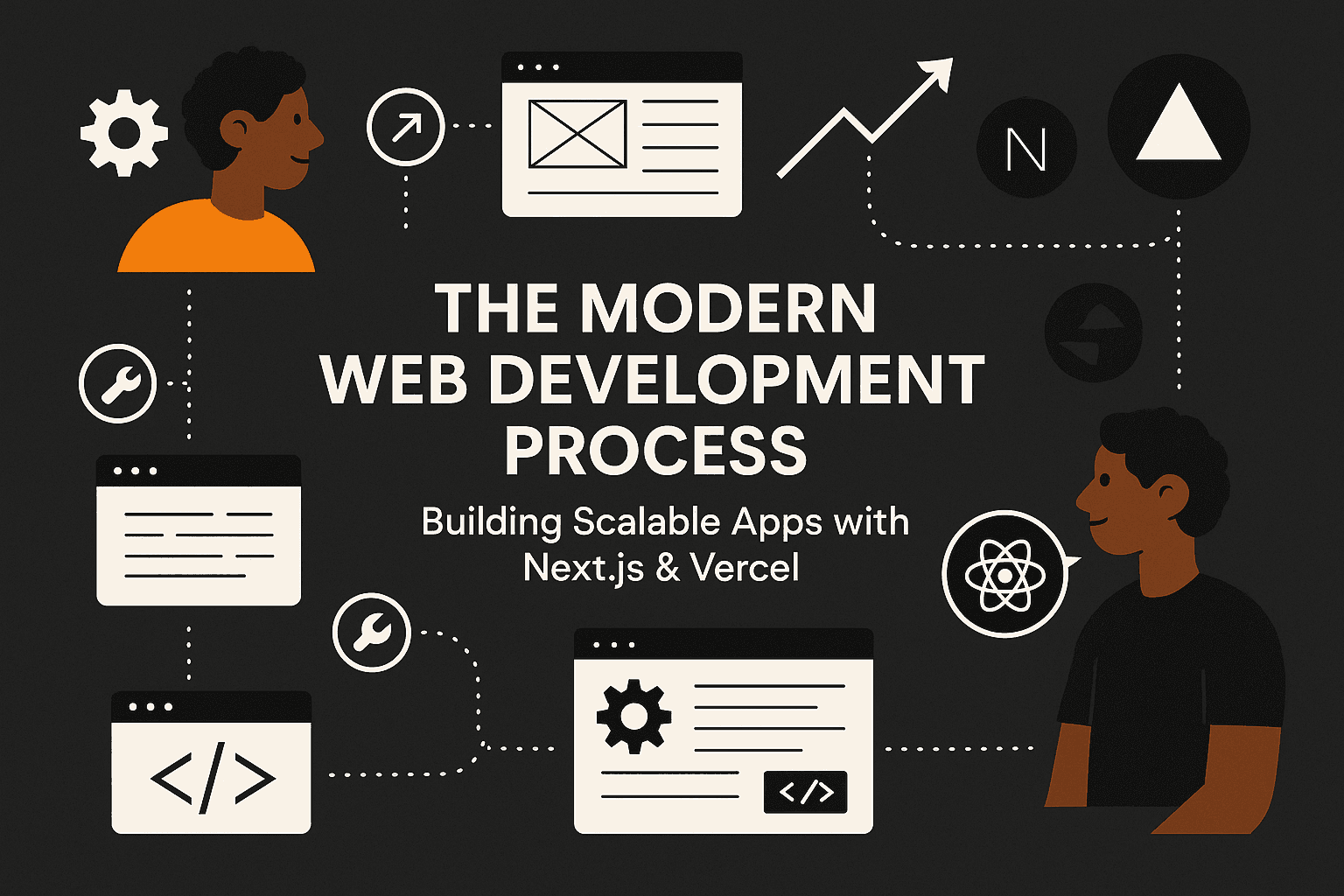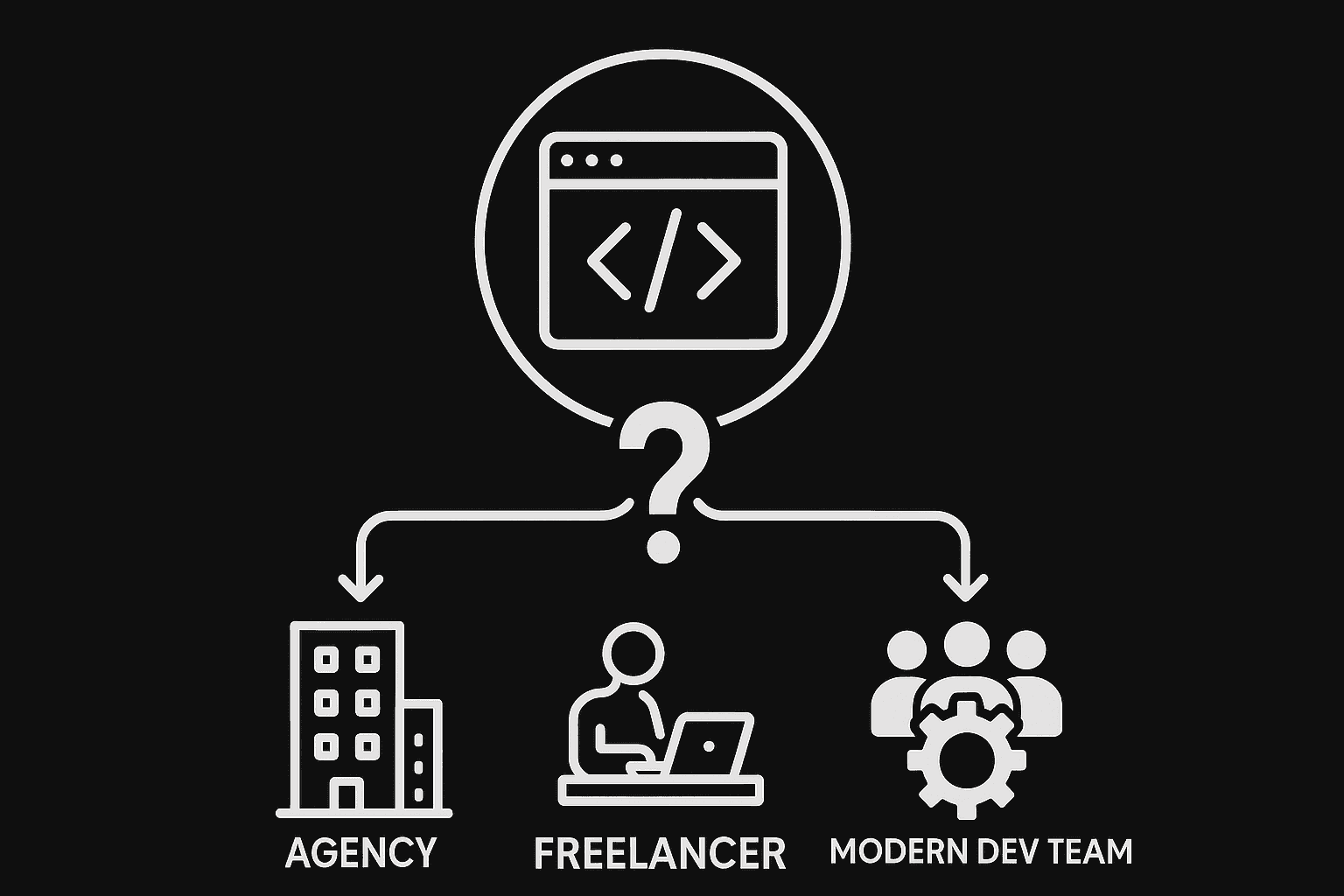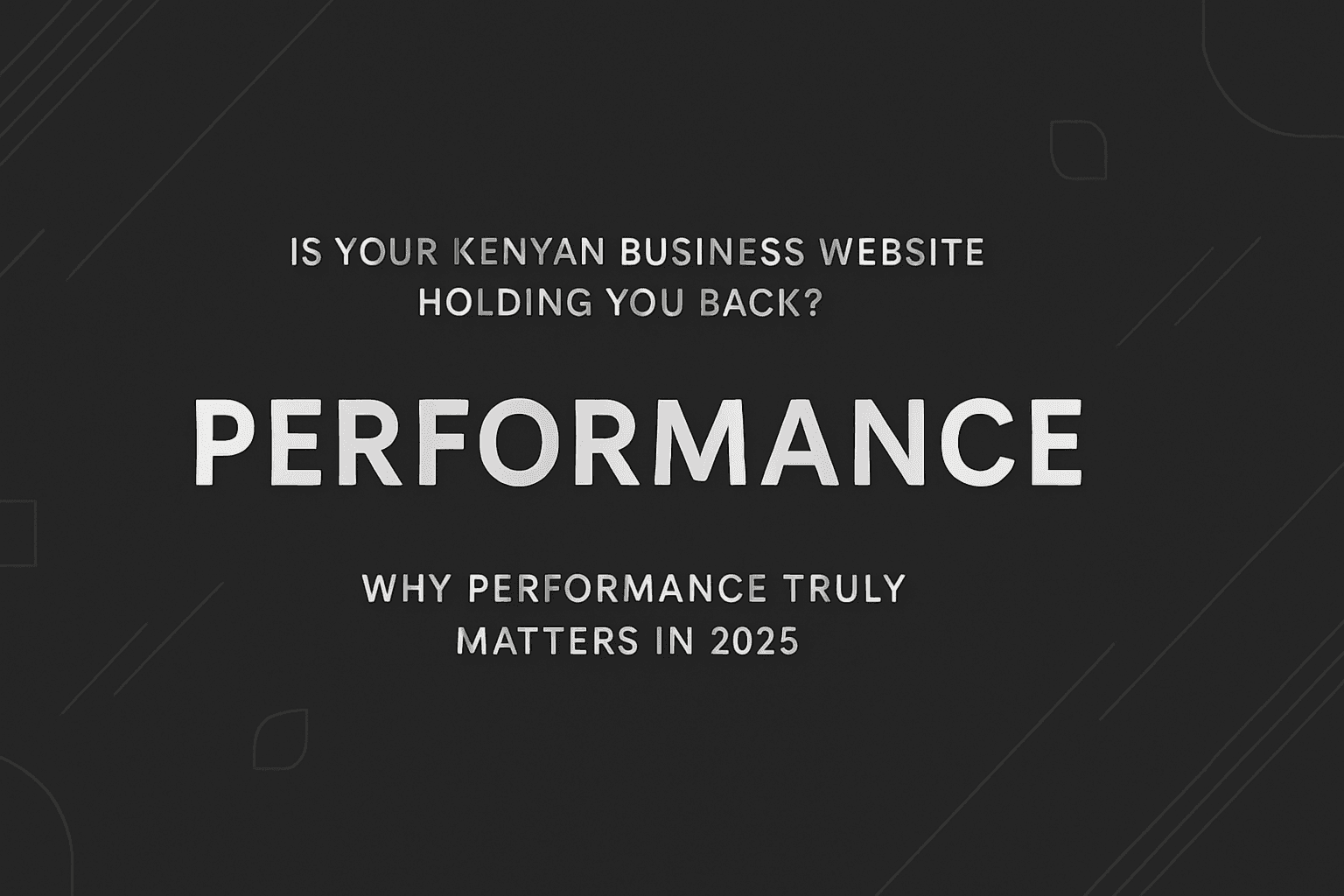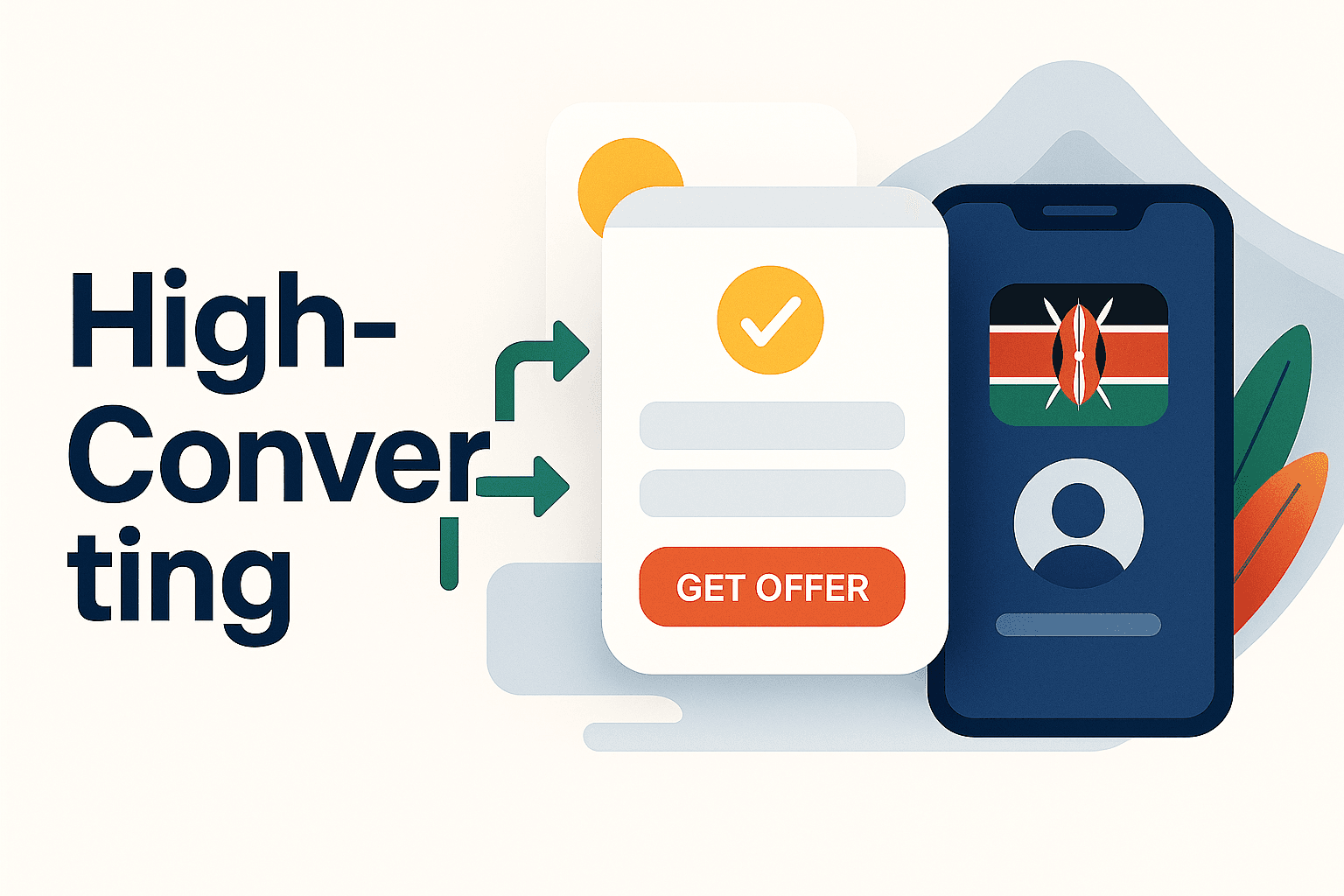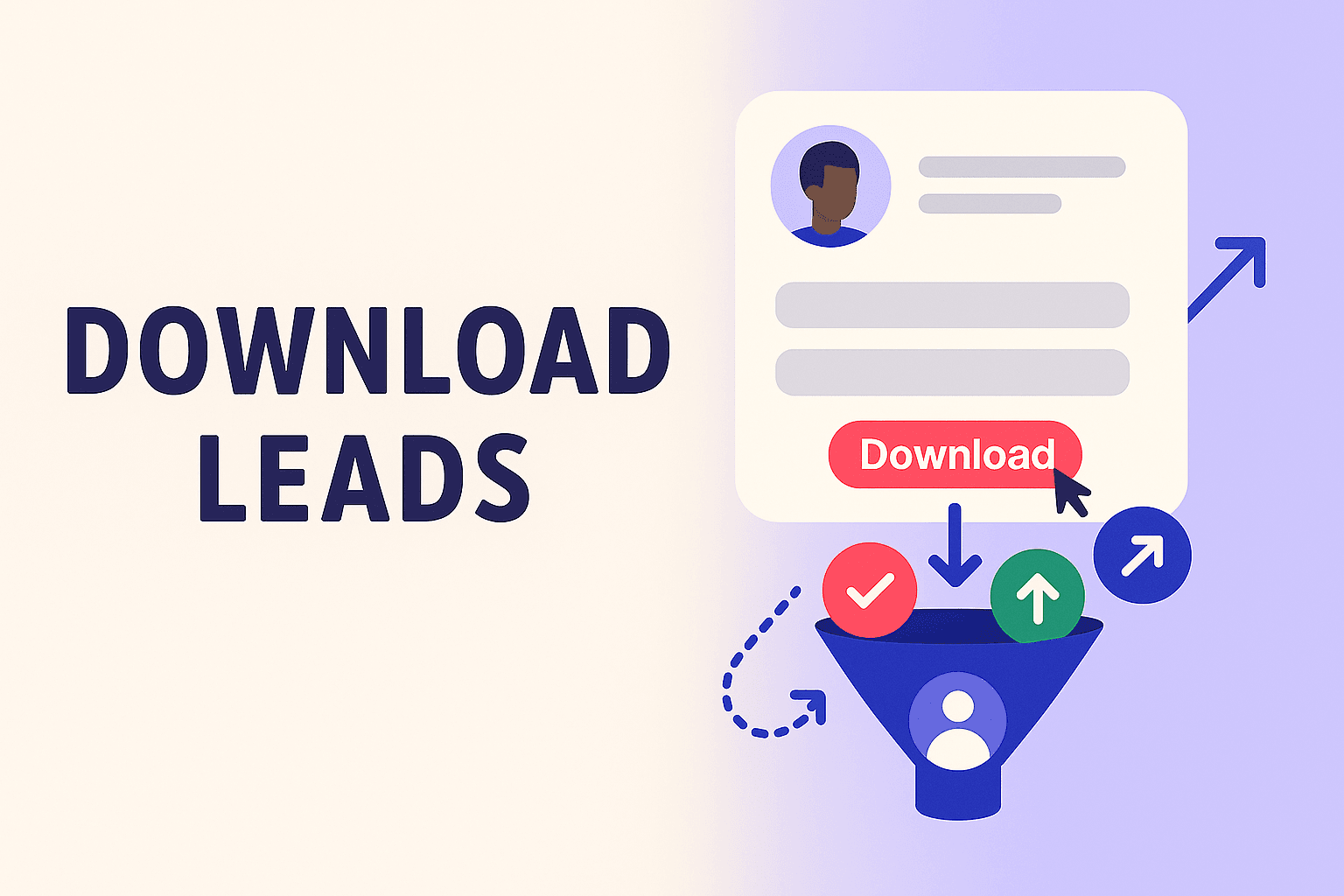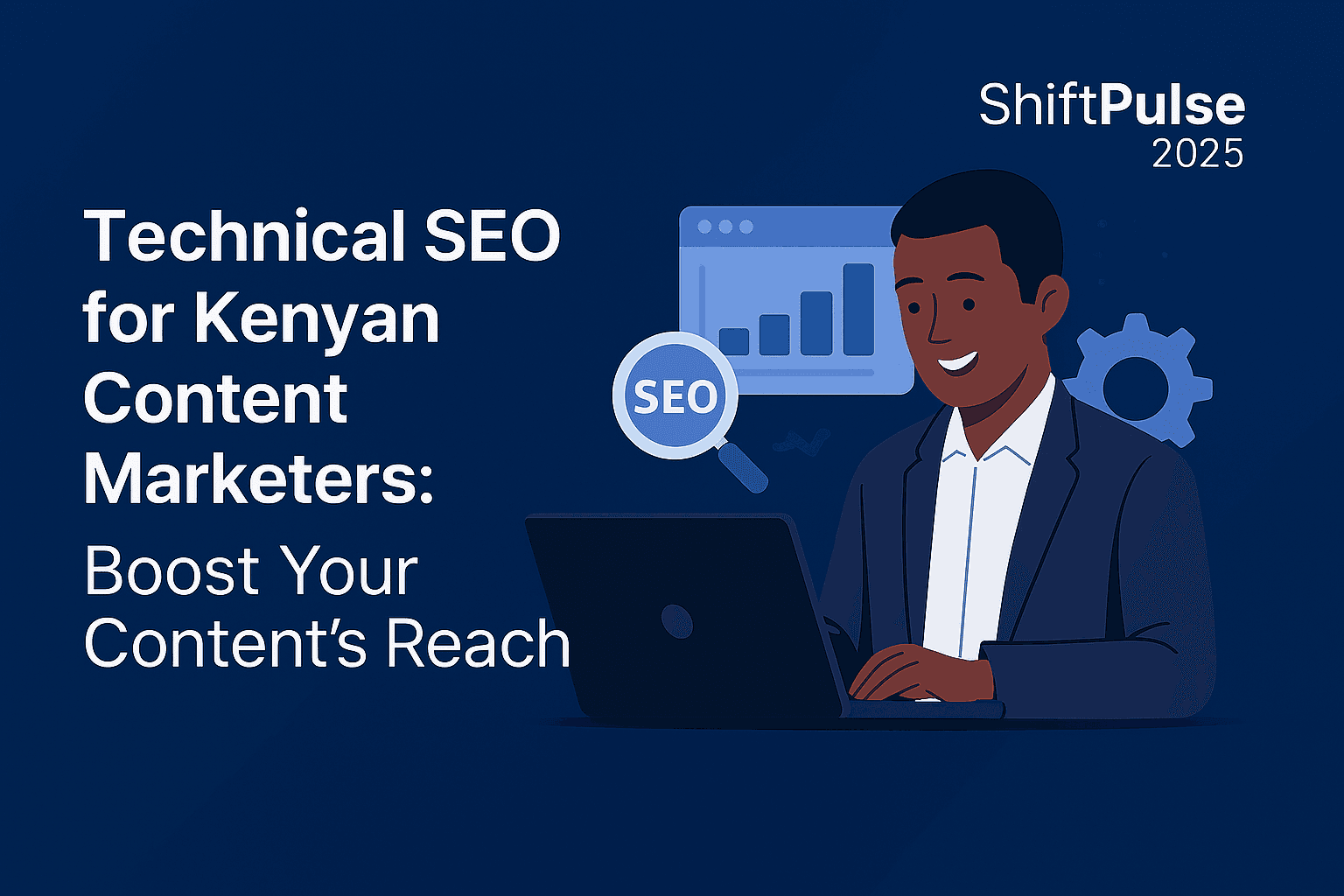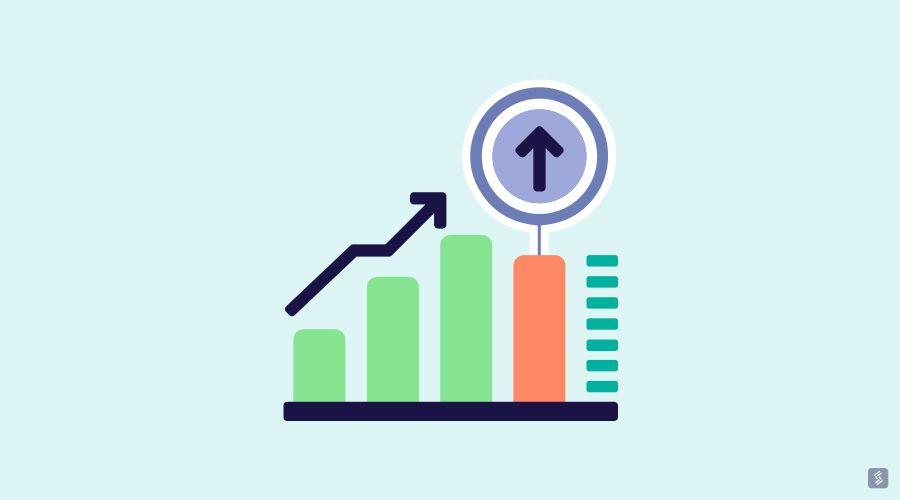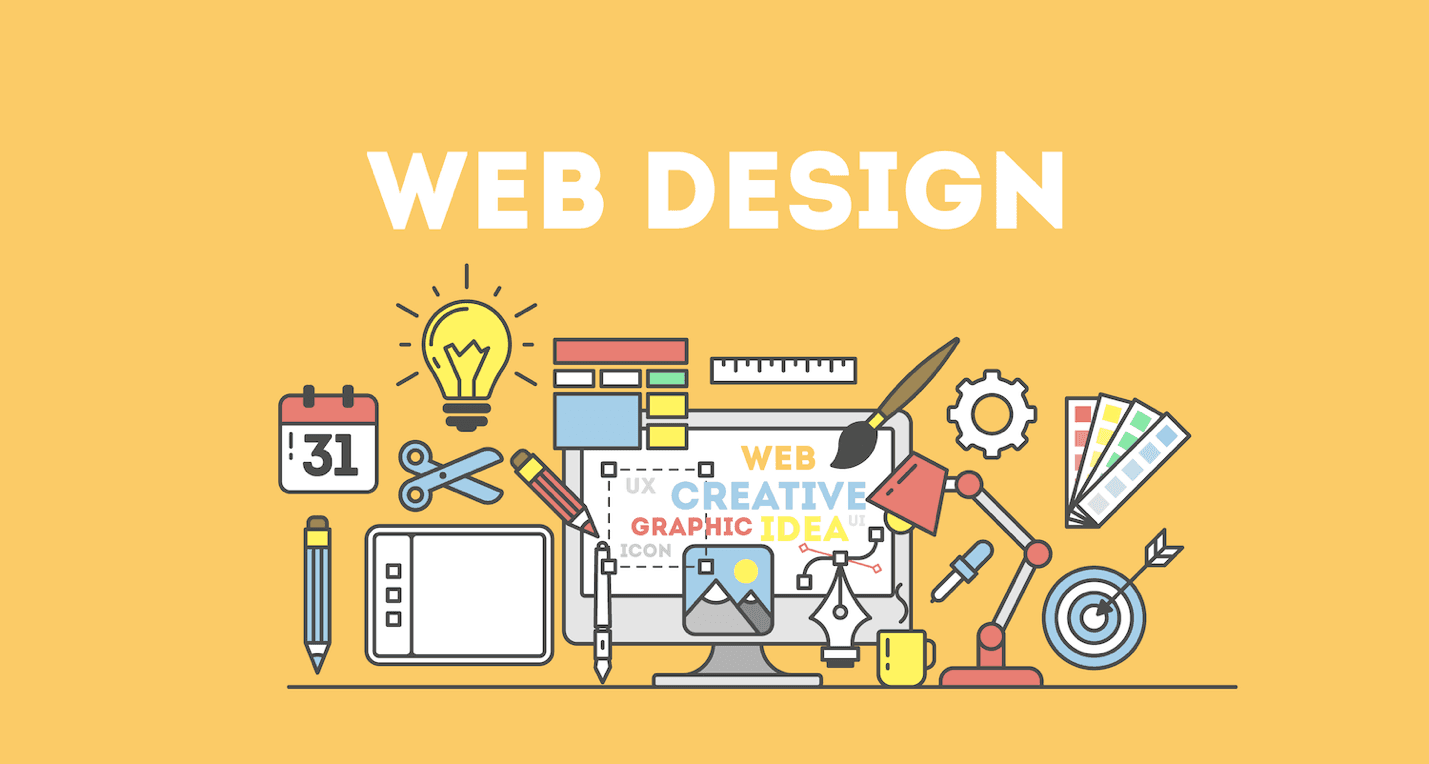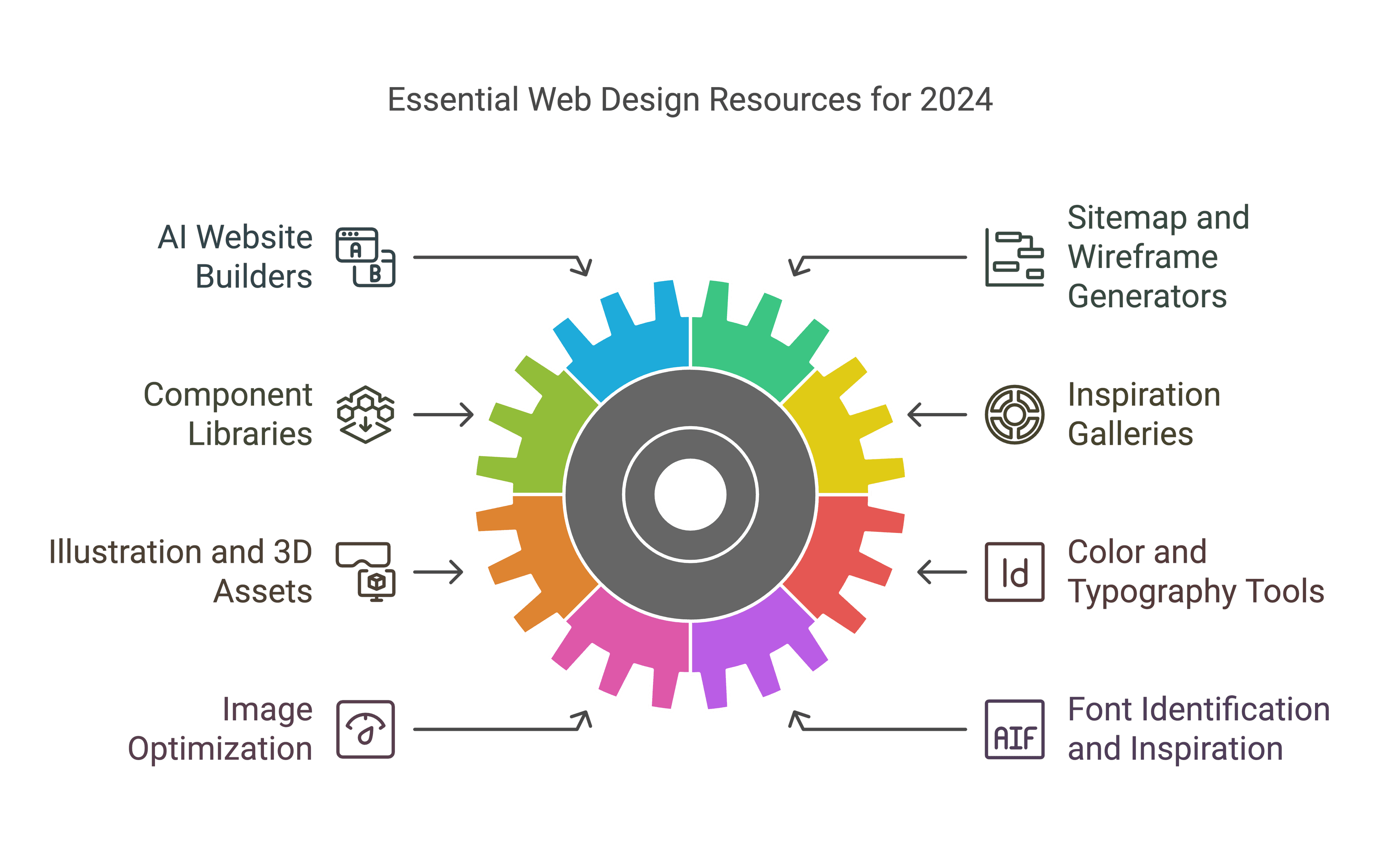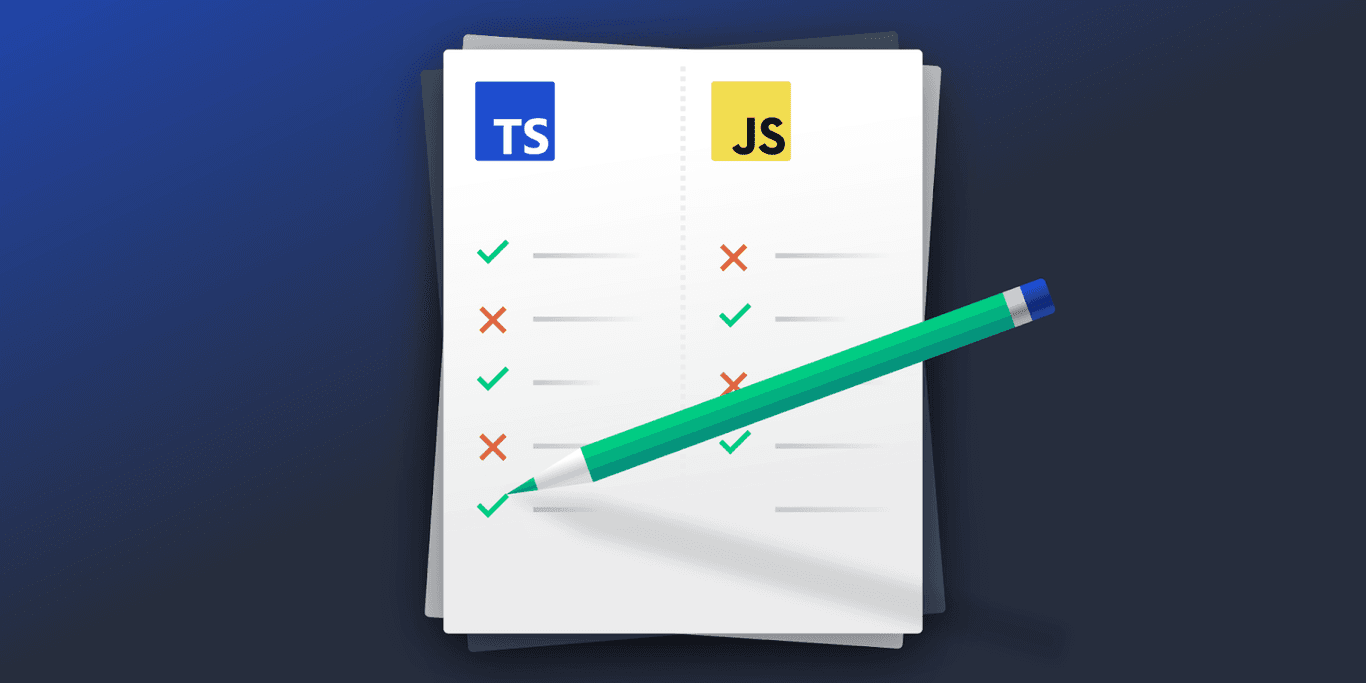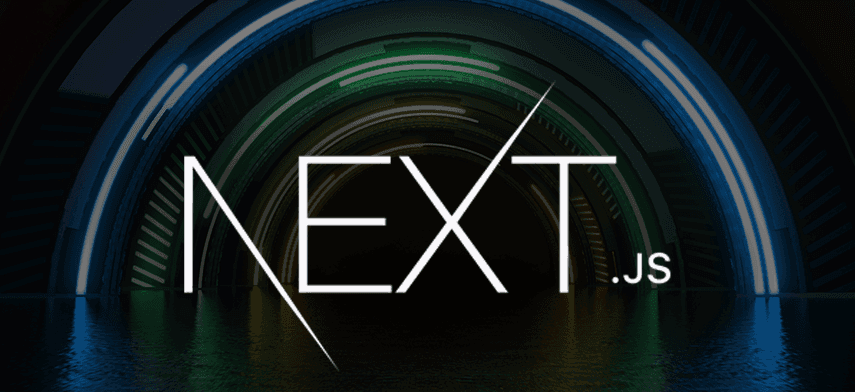
Ken Kariuki
Shiftpulse Marketers
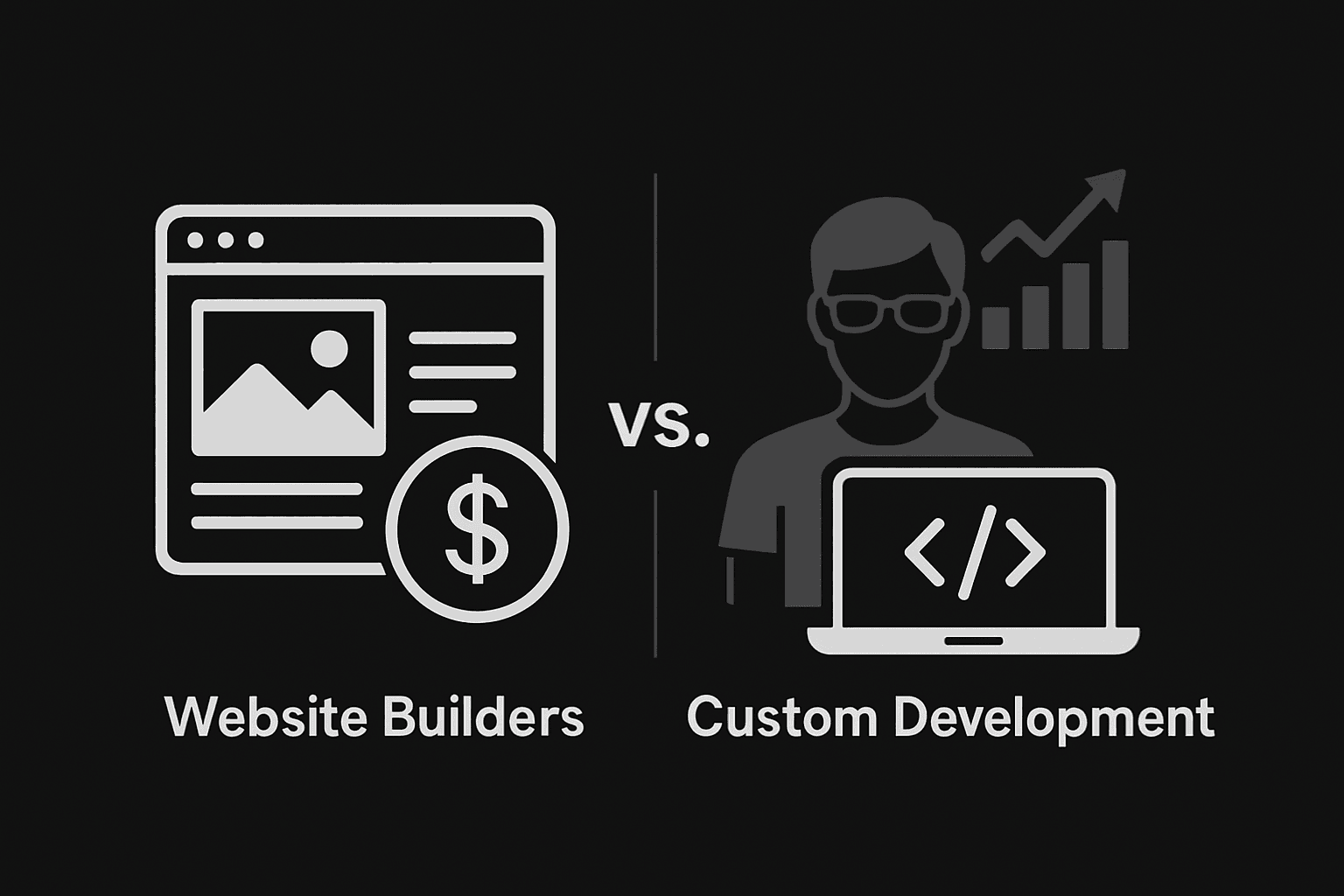
TL;DR: Kenyan businesses must choose between website builders (cheap and fast but limited) or custom development (costly but scalable). Builders like Wix start at KSh 1,500/month, while custom sites can range from KSh 50,000 to over KSh 1M. Custom websites offer better branding, SEO, and flexibility, which are crucial for long-term success in Kenya’s growing digital economy.
Choosing how to build your online presence is one of the most critical decisions for any Kenyan business in 2025. With the digital landscape evolving rapidly, your website is more than just an online brochure; it's your digital storefront, your lead generation engine, and often the first interaction potential customers have with your brand. But a common question looms large: what will it cost, and which approach offers the best value – a custom-built web application or an off-the-shelf website builder?
At ShiftPulse, we understand that navigating the world of web development cost Kenya can be daunting. This article aims to demystify the options, providing clear, practical guidance tailored to the Kenyan market. We'll explore the upfront costs, the often-overlooked Total Cost of Ownership (TCO), and the long-term Return on Investment (ROI), particularly highlighting the value of custom development when aligned with your business goals.
The Two Main Paths: Website Builders vs. Custom Development in Kenya
Let's break down the two primary avenues for getting your Kenyan business online:
1. Website Builders (e.g., Wix, Shopify, Squarespace)
Website builders are platforms that allow individuals and businesses to create websites using pre-designed templates and drag-and-drop interfaces, often without needing to write any code.
- Pros for Kenyan Businesses:
- Lower Upfront Cost: This is often the biggest draw. You can get a basic site live relatively cheaply. Many offer free plans with limited features, with paid plans for Kenyan users often starting from around KSh 1,500 to KSh 5,000 per month.
- Speed of Launch: You can potentially get a simple website up and running in a matter of days, or even hours.
- Ease of Use: Designed for beginners, these platforms are generally intuitive.
- Built-in Hosting & Security (Basic): Most builders handle the basic technicalities of hosting and SSL certificates.
- Cons and Limitations:
- Design & Feature Limitations: You're often restricted by template designs and the platform's feature set. Unique functionalities or complex integrations (beyond common ones) can be difficult or impossible.
- Scalability Issues: As your Kenyan business grows, a builder site might struggle to keep up with increased traffic, data, or feature demands.
- SEO Constraints: While improving, builders can sometimes have limitations that affect advanced Search Engine Optimization (SEO) and performance tuning crucial for ranking in Kenya.
- Data Ownership & Portability: Moving your site away from a builder platform can be challenging, sometimes leading to vendor lock-in.
- Transaction Fees: For e-commerce, some builders charge transaction fees on top of payment gateway fees (like those for M-Pesa), which can eat into your margins.
- Typical Upfront website design kenya cost (Builder Sites):
- Basic Informational Site: KSh 0 (for very basic, ad-supported free plans) to KSh 20,000 (for annual premium plans with a custom domain).
- E-commerce (Small Inventory): KSh 30,000 to KSh 70,000 annually for plans with e-commerce features.
- Ideal for: Startups with very tight budgets needing a quick online presence, simple brochure sites, or individuals testing a business idea in the Kenyan market.
2. Custom Web Development (WordPress, Next.js, etc.)
Custom web development involves building a website from the ground up or heavily customizing a flexible platform like WordPress, tailored precisely to your business requirements. This route typically involves hiring professional web developers or an agency like ShiftPulse.
- Pros for Kenyan Businesses:
- Tailored Design & Functionality: Your website is built to your exact specifications, reflecting your unique brand and offering specific features your Kenyan customers need (e.g., advanced M-Pesa integrations, custom calculators, specific database interactions).
- Scalability & Flexibility: Custom sites are built to grow with your business. They can handle increasing traffic, complex features, and evolving needs.
- Optimal SEO & Performance: You have full control over the code, allowing for meticulous SEO implementation and performance optimization (crucial for Core Web Vitals and ranking on google.co.ke). This is a core focus of our website design and development services at ShiftPulse.
- Full Data Ownership & Control: You own your website code and data, with no vendor lock-in.
- Enhanced Security: Custom solutions can incorporate robust, tailored security measures beyond basic offerings.
- Unique Branding: Stand out in the competitive Kenyan market with a distinct online presence.
- Cons and Considerations:
- Higher Upfront Cost: This is the main barrier for many. Custom development requires significant time and expertise.
- Longer Development Time: A custom project will take weeks or months, depending on complexity.
- Requires Technical Expertise (to manage or hire): While agencies like ShiftPulse offer ongoing maintenance, understanding the basics is helpful.
- Typical Upfront custom web application cost Kenya / web development cost kenya:
- Custom WordPress Website:
- Basic (Theme-based, some customization): KSh 50,000 – KSh 150,000+
- Advanced (Highly customized, e-commerce, unique plugins): KSh 150,000 – KSh 500,000+
- (This addresses WordPress website cost considerations for Kenya.)
- Custom Web Application (e.g., PHP/Laravel, Python/Django, or Next.js/React):
- Simple to Moderate Complexity: KSh 300,000 – KSh 1,000,000+
- Complex Enterprise-level Applications: KSh 1,000,000 to several million shillings.
- (The Next.js cost would typically fall in the mid to higher end of this custom range due to specialized skills, but offers significant performance and scalability benefits. ShiftPulse has experience delivering high-performance Next.js applications.)
- Custom WordPress Website:
- Ideal for: Established Kenyan businesses aiming for growth, companies needing specific functionalities, e-commerce stores requiring robust and scalable platforms, or any business serious about long-term branding and SEO in the Kenyan market. For those seeking affordable website design Kenya but needing more than a basic builder, a well-scoped custom WordPress site can be a good middle ground.
Key Factors Influencing Web Development Costs in Kenya
Regardless of the path you choose, several factors will impact the final web development cost Kenya:
Complexity of Design & Features: The more unique design elements, pages, and custom functionalities (e.g., booking systems, user portals, advanced calculators, M-Pesa STK push integration), the higher the cost.
E-commerce Functionality: Setting up an online store with product listings, shopping carts, payment gateway integration (M-Pesa, card payments), and inventory management adds complexity and cost.
Content Management System (CMS): While WordPress is open-source, customizing it extensively or building a custom CMS will influence the price.
Database Integration & APIs: Connecting to external databases or third-party services (APIs) requires specialized development.
Developer/Agency Experience & Location: Highly experienced developers or established agencies in Nairobi may charge more than junior developers or those in other regions, but often bring greater expertise and reliability.
Content Creation & SEO: Will you provide content, or does it need to be created? Initial on-page SEO setup is crucial and adds to the scope. ShiftPulse integrates SEO best practices from the start.
Maintenance & Support: Post-launch support, security updates, and maintenance plans are ongoing costs to consider.
Beyond Upfront Costs: Total Cost of Ownership (TCO) in the Kenyan Context
It's crucial for Kenyan businesses to look beyond the initial price tag and consider the Total Cost of Ownership (TCO) over several years.
- Website Builders TCO:
- Monthly/annual subscription fees (can increase over time or with added features).
- Transaction fees (for e-commerce platforms).
- Costs for premium themes or essential plugins/apps.
- Potential costs of migrating away if you outgrow the platform (can be substantial in terms of time and lost data/SEO).
- Opportunity cost if the builder's limitations hinder your SEO or conversion potential in the competitive Kenyan market.
- Custom Development TCO:
- Higher upfront development cost.
- Annual hosting fees (ranging from KSh 2,000 to KSh 20,000+ per year for shared to VPS hosting in Kenya).
- Domain name registration (approx. KSh 1,000-1,500/year).
- SSL certificate (many good hosts offer free Let's Encrypt SSL).
- Ongoing maintenance and security updates (can be a monthly retainer with an agency like ShiftPulse, e.g., KSh 5,000-KSh 30,000+, or ad-hoc charges).
- Future development costs for new features (but these are investments in growth).
While the initial custom web application cost Kenya is higher, the TCO can sometimes be more predictable and even lower over many years if it prevents costly migrations or the need for constant paid add-ons. More importantly, a custom solution built for growth and performance can deliver a significantly higher ROI.
The ROI of Custom Development for Kenyan Businesses
Investing in custom web development, when done strategically, offers compelling returns for Kenyan businesses:
Enhanced Brand Perception & Trust: A unique, professional website tailored to your brand builds credibility and trust with your Kenyan audience, differentiating you from competitors using generic templates.
Improved User Experience (UX) & Conversions: Custom UX design, informed by local user behavior (e.g., mobile-first for the Kenyan market, seamless M-Pesa checkout), leads to higher engagement and conversion rates. ShiftPulse focuses on designing for delight and conversion.
Superior SEO Performance: Full control allows for optimized site architecture, faster load times (Core Web Vitals), and targeted content strategies, leading to better rankings on google.co.ke and more organic traffic.
Scalability for Growth: Your website can adapt and scale as your Kenyan business expands, accommodating more products, services, users, and traffic without needing a complete overhaul.
Operational Efficiency: Custom features can automate business processes, integrate with your existing systems, and save you time and resources in the long run.
Higher Customer Lifetime Value: A great online experience fosters loyalty, leading to repeat business and referrals within the Kenyan market.
For Kenyan SMEs looking at options for affordable website design Kenya, it's about balancing upfront cost with this long-term value. Sometimes, a phased custom approach, starting with essential features and building out, can manage initial investment while paving the way for future ROI.
Legal Corner (Kenya): Data Protection Act (DPA) 2019 & E-commerce Considerations
No discussion of websites in Kenya is complete without addressing legal compliance, particularly the Data Protection Act (DPA), 2019. This act governs how personal data of Kenyan residents is collected, processed, and stored.
- Key DPA Requirements for Your Website:
- Lawful Basis for Processing: You must have a valid reason (e.g., consent) to collect personal data.
- Consent: Obtain explicit, informed consent from users before collecting their data (e.g., for contact forms, newsletter sign-ups). Pre-ticked boxes are generally not compliant.
- Privacy Policy: Your website must have a clear, easily accessible privacy policy detailing what data you collect, why, how it's used, stored, and protected, and users' rights. ShiftPulse can guide you on creating a DPA-compliant policy framework for your marketing.
- Data Security: Implement reasonable security measures to protect personal data (SSL certificates are a minimum).
- Data Subject Rights: Users have rights to access, rectify, and request erasure of their data.
- Cookie Consent: Provide clear information about cookie usage and obtain consent.
- E-commerce Regulations:
- Consumer Protection: Provide clear and accurate product/service descriptions, pricing (in KSh), and terms of sale.
- Secure Payments: Ensure payment gateways (especially M-Pesa and card processors) are secure and compliant.
- Returns & Refunds: Have a clear and fair policy.
How Your Choice Affects Compliance:
- Website Builders: May offer some compliance tools, but you are still responsible for how you use them and the data you collect. Customization for specific DPA requirements might be limited.
- Custom Development: Offers greater control to implement robust, tailored data protection measures and consent mechanisms exactly as required by Kenyan law. An experienced agency like ShiftPulse will build with compliance in mind.
Regardless of your choice, understanding and adhering to the DPA is non-negotiable. Failure to comply can lead to significant penalties and loss of customer trust.
Making the Right Choice for Your Kenyan Business: Practical Steps
Clearly Define Your Business Needs & Goals: What do you need your website to do for your Kenyan business today and in the next 2-3 years? (e.g., generate leads, sell products, provide information, build a community).
Assess Your Budget Realistically: Consider both upfront web development cost Kenya and long-term TCO. What's a sustainable investment for your business?
Evaluate Your Technical Comfort Level: Are you comfortable managing a website yourself (as with some builders), or do you prefer to outsource technical aspects?
Consider Scalability & Future Growth: If you plan significant growth, a custom solution might be a better long-term investment.
Research Potential Partners (if going custom): Look at portfolios, client testimonials, and case studies of Kenyan businesses. Ask about their experience with similar projects and their approach to SEO, security, and DPA compliance.
Ask Detailed Questions:
- What is included in the website design kenya cost?
- How do you approach custom web application cost Kenya estimates?
- What are the expected ongoing maintenance costs?
- How will you ensure my website is optimized for Kenyan search engines and mobile users?
- Can you explain your experience with the Kenyan Data Protection Act?
- What is your process for integrating M-Pesa securely and effectively?
ShiftPulse offers consultations to help Kenyan businesses walk through these questions and determine the best approach for their specific situation.
Conclusion: Investing Wisely in Your Kenyan Digital Future
The decision between a website builder and custom web development is a significant one for any Kenyan business. While builders offer a seemingly affordable website design Kenya option for getting online quickly, it's crucial to weigh this against potential limitations in flexibility, scalability, and long-term ROI.
Custom web development, though a larger upfront investment, provides a tailored, scalable, and performance-optimized solution that can truly differentiate your brand and drive sustainable growth in the competitive Kenyan market. Understanding the nuances of Next.js cost or WordPress website cost within a custom framework allows for informed budgeting for a powerful asset.
Ultimately, the "right" choice depends on your specific business needs, goals, budget, and long-term vision. Don't let the initial web development cost Kenya be the sole deciding factor. Consider the TCO, potential ROI, and the strategic value of a website built to perform and comply with local regulations like the Data Protection Act.
Ready to explore the best web development path for your Kenyan business? The experts at ShiftPulse are here to help. We offer tailored website design and development services, from custom WordPress solutions to high-performance Next.js applications, all designed with the Kenyan market and your business success in mind. Contact ShiftPulse today for a consultation to discuss your project and get a clear understanding of your potential investment and returns. Okay, this is an excellent topic for Kenyan businesses, and I'll ensure the article aligns with both your specific instructions (legal depth for Kenya, human tone, practical guidance, SEO, local relevance) and the overarching ShiftPulse Blog Content Creation Guidelines.
Here's the optimized blog post:
Optimized Title Tag Suggestion:
- Web Development Costs Kenya (2025): Custom vs. Builder Sites | ShiftPulse
Meta Description Suggestions:
"Confused about website costs in Kenya? ShiftPulse compares custom web apps vs. builders, Next.js vs. WordPress, DPA compliance & ROI for 2025. Make an informed choice!"
"Budgeting for a website in Kenya? Explore 2025 costs for custom development (incl. Next.js) vs. website builders. Understand TCO, ROI & legal needs with ShiftPulse."
"Get clear on website design kenya cost. ShiftPulse breaks down custom web application cost Kenya vs. builders, focusing on value, WordPress website cost, and DPA."
Understanding Web Development Costs in Kenya (2025): Custom Apps vs. Builder Sites – A ShiftPulse Guide
For any Kenyan business in 2025, a professional and effective online presence isn't just an advantage; it's a necessity. But as you embark on creating or upgrading your website, a fundamental question arises: should you opt for a custom-built web application or utilize a website builder? This decision significantly impacts not only the initial website design kenya cost but also long-term functionality, scalability, and ultimately, your return on investment (ROI).
At ShiftPulse, we understand that navigating these choices can be daunting. This article aims to provide clear, practical guidance for Kenyan businesses, demystifying web development cost kenya, comparing upfront expenses with the long-term Total Cost of Ownership (TCO), and highlighting the value proposition of each approach, all within the Kenyan legal and economic context as of April 2025.
The Two Main Paths: Website Builders vs. Custom Development in Kenya
Let's break down what each option entails for a business operating in Kenya.
1. Website Builders (e.g., Wix, Squarespace, Shopify for E-commerce)
Website builders are platforms that allow users to create websites using pre-designed templates and drag-and-drop interfaces, often requiring minimal to no coding knowledge.
- Pros for Kenyan Businesses:
- Lower Upfront Costs: This is often the biggest draw. Getting a basic site live can be relatively inexpensive, sometimes starting from as low as KSh 5,000 - KSh 15,000 for the very basic tier, though more functional sites will incur monthly subscription fees (typically KSh 2,000 - KSh 10,000+ per month depending on features). This can make them seem like an affordable website design kenya solution initially.
- Speed of Launch: You can get a simple website online much faster than with custom development.
- Ease of Use: Designed for beginners, making basic updates often straightforward.
- Built-in Hosting & Security (Basic): Most builders handle hosting and basic security, reducing initial technical hurdles.
- Cons and Long-Term Considerations:
- Limited Customization: You're often confined by template limitations. Achieving a truly unique brand identity or specific Kenyan user experience can be challenging.
- Scalability Issues: As your Kenyan business grows, you might find the builder can't accommodate more complex features, specific integrations (like highly customized M-Pesa workflows beyond standard plugins), or increased traffic efficiently.
- SEO Limitations: While improving, builders can sometimes offer less granular control over SEO elements compared to custom builds, potentially impacting your visibility in searches for "Kenya" + your service/product.
- Vendor Lock-in: Migrating your website away from a builder platform can be difficult or impossible, meaning you don't truly "own" the underlying code or design in the same way.
- Transaction Fees (for E-commerce): Platforms like Shopify, while excellent for e-commerce, might charge transaction fees on top of monthly subscriptions if you don't use their proprietary payment gateway.
- Typical WordPress website cost (using templates/builders vs. custom WordPress): While WordPress is a CMS that can be heavily customized (see below), using it with off-the-shelf themes and minimal customization via page builders functions similarly to other website builders in terms of initial ease and cost. A basic templated WordPress site setup might range from KSh 20,000 to KSh 70,000. However, for a more bespoke WordPress website cost involving custom theme development or significant plugin customization, costs can rise to KSh 100,000 – KSh 300,000+, blurring the lines with full custom development.
- Ideal Use Cases for Kenyan SMEs: Startups with very limited initial budgets needing a simple online brochure, event websites, or very small-scale e-commerce ventures testing the waters.
2. Custom Web Development
This involves building a website or web application from scratch (or using a foundational framework/CMS that allows deep customization) tailored specifically to your business requirements. This could involve PHP frameworks like Laravel, Python with Django, or modern JavaScript stacks like Next.js with React.
- Pros for Kenyan Businesses:
- Complete Customization: Designed and built precisely for your brand, target audience in Kenya, and unique business processes. This allows for a unique user experience (UX) and user interface (UI).
- Scalability: Built with your growth in mind, able to handle increasing traffic, users, and complex features as your Kenyan business expands.
- Optimal SEO Control: Every aspect can be fine-tuned for search engines, crucial for ranking for competitive Kenyan keywords. This includes technical SEO aspects that are vital for Core Web Vitals.
- Integration Capabilities: Seamlessly integrate with other business systems, including custom M-Pesa solutions, CRM software, inventory management, etc.
- Ownership: You own the code and design, providing long-term flexibility and control.
- Enhanced Security: Custom security measures can be implemented to address specific threats or comply with stringent data protection requirements, which is vital under Kenya's Data Protection Act.
- Cons and Considerations:
- Higher Upfront custom web application cost Kenya: This is the most significant initial barrier. Costs can range widely:
- Custom WordPress Development: KSh 100,000 – KSh 500,000+
- Custom Web Applications (e.g., PHP/Laravel, Python/Django): KSh 250,000 – KSh 1,000,000+
- Next.js cost / React Development: Often at the higher end due to specialized skills, potentially KSh 400,000 – KSh 1,500,000+ for complex applications. These modern frameworks offer excellent performance and user experience, contributing to better ROI.
- Longer Development Time: Building from scratch takes more time than using a template.
- Requires Expertise: You'll need to hire skilled developers or a reputable agency like ShiftPulse.
- Higher Upfront custom web application cost Kenya: This is the most significant initial barrier. Costs can range widely:
- Ideal Use Cases for Kenyan Businesses: Established SMEs aiming for significant online growth, businesses with unique service offerings or complex requirements (e.g., custom booking systems, specific e-commerce workflows with deep M-Pesa integration), companies requiring high levels of security and scalability, or those seeking a strong, unique brand identity online.
Key Factors Influencing Web Development Cost Kenya
Regardless of the path you choose, several factors will influence the final cost:
- Complexity of Design & Features: More pages, intricate designs, and advanced functionalities (e.g., e-commerce capabilities, user accounts, booking systems, custom calculators, M-Pesa STK push) increase costs.
- Developer/Agency Experience & Location: Highly experienced developers or established agencies in Nairobi may charge more than junior developers or those in other regions, but often deliver higher quality and reliability.
- Technology Stack: Using cutting-edge technologies like Next.js might involve higher developer costs due to specialized skills, but can lead to superior performance. A Next.js cost will generally be higher than a basic PHP site.
- Content Creation: Will you provide content, or does the developer/agency need to create it (copywriting, photography, videography)? This can be a significant additional cost.
- SEO & Digital Marketing Integration: Initial SEO setup or ongoing digital marketing services will add to the cost. ShiftPulse offers comprehensive SEO services tailored for the Kenyan market.
- Maintenance & Support: Post-launch support, updates, and security monitoring are ongoing costs. Basic website maintenance in Kenya can range from KSh 5,000 to KSh 20,000+ per month.
Beyond Upfront Costs: Total Cost of Ownership (TCO) in the Kenyan Context
It's crucial for Kenyan businesses to look beyond the initial price tag and consider the Total Cost of Ownership (TCO) over several years.
- Website Builders TCO:
- Monthly/annual subscription fees (these can increase).
- Transaction fees for e-commerce platforms.
- Costs for premium themes, apps, or plugins.
- Potential costs of lost opportunity due to limitations in SEO, scalability, or unique branding.
- Future migration costs if the platform no longer meets needs.
- Custom Development TCO:
- Higher upfront development cost.
- Annual hosting and domain renewal fees (hosting can range from KSh 3,000 to KSh 50,000+ annually in Kenya, depending on the type).
- SSL certificate costs (though many hosts offer free options).
- Ongoing maintenance and update costs (can be managed with a retainer or on an ad-hoc basis).
- Potential costs for future feature additions or major upgrades.
While the upfront custom web application cost Kenya is higher, the TCO might be more favorable over time if the custom solution leads to significantly better business outcomes (more leads, higher conversions, stronger brand loyalty) and avoids the recurring fees and limitations of builders.
The ROI of Custom Development for Kenyan Businesses
The true value of custom development often lies in its potential for a higher Return on Investment (ROI), especially for ambitious Kenyan businesses.
- Tailored User Experience: A site designed specifically for your Kenyan target audience and business goals will likely convert better.
- Scalability for Growth: A custom site can grow with your business, handling more products, services, users, and traffic without needing a costly platform migration.
- Unique Brand Identity: Stand out from competitors in the Kenyan market with a unique design that reinforces your brand.
- Optimized for Performance & SEO: Custom builds allow for meticulous optimization for Google’s Core Web Vitals and targeted Kenyan SEO strategies, leading to better search rankings and more organic traffic. ShiftPulse’s expertise in Conversion Rate Optimization can further enhance this.
- Efficient Operations: Integration with other business systems (e.g., accounting, CRM, specific M-Pesa reconciliation tools) can streamline operations and save costs.
ShiftPulse often advises clients that while an affordable website design kenya via a builder seems attractive, a custom solution, though a larger initial investment, is often the more strategic choice for long-term growth and ROI.
Legal Corner (Kenya): Data Protection & E-commerce Compliance for Your Website
When planning your website, regardless of the development path, Kenyan legal requirements must be a core consideration.
- The Data Protection Act (DPA), 2019: This is the cornerstone of data privacy in Kenya. Your website mustcomply if it collects any personal data from Kenyan residents (e.g., names, emails, phone numbers through contact forms, newsletter sign-ups, or e-commerce transactions).
- Consent: You must obtain clear, explicit, and informed consent before collecting personal data. Pre-ticked boxes are not compliant.
- Privacy Policy: Your website must have a readily accessible and easy-to-understand Privacy Policy outlining what data you collect, why, how it's used, how it's protected, and users' rights.
- Data Security: You are legally obligated to implement appropriate technical and organizational measures to secure personal data. This includes using HTTPS (SSL certificates).
- Data Minimization: Only collect data that is necessary for the specified purpose.
- Registration with ODPC: Depending on the volume and nature of data processed, you might need to register with the Office of the Data Protection Commissioner.
- Builder sites may offer some compliance tools, but you are ultimately responsible for ensuring your usage of the platform is DPA-compliant. Custom development often allows for more granular control over data flows and security measures tailored to DPA requirements. ShiftPulse can help you navigate these digital marketing regulations.
- E-commerce Regulations (Consumer Protection Act, 2012, etc.):
- Accurate Information: Provide clear, accurate, and complete descriptions of products/services, including pricing (clearly stating if VAT is included).
- Fair Terms & Conditions: Display clear terms of service, return policies, and refund processes.
- Secure Payments: Ensure payment gateways (including M-Pesa) are secure and comply with any Central Bank of Kenya guidelines for electronic transactions.
Failure to comply can lead to significant penalties and loss of customer trust. It's wise to factor legal review and compliance measures into your web development cost kenya.
Making the Right Choice for Your Kenyan Business: A Practical Approach
So, how do you decide? Here’s a simplified thought process:
Assess Your Business Needs & Goals:
- What is the primary purpose of your website (informational, lead generation, e-commerce, custom functionality)?
- What specific features are non-negotiable (e.g., deep M-Pesa integration, specific CRM link, unique user portal)?
- What are your growth projections for the next 2-5 years in the Kenyan market?
- How important is a unique brand identity online?
Evaluate Your Budget Realistically:
- What is your upfront budget for the initial website design kenya cost?
- What can you afford for ongoing monthly/annual costs (TCO)?
- Remember: the cheapest option now might not be the most cost-effective in the long run.
Consider Your Technical Expertise:
- Do you or your team have the skills to manage and update the website? Builders are easier for non-tech users for basic changes.
- For custom sites, you'll likely need ongoing support from your developer/agency unless you have an in-house team.
Weigh the Pros & Cons in Your Kenyan Context:
- For a new local café in Nairobi needing a simple menu, location, and contact page, a website builder might be a perfectly affordable website design kenya to start.
- For a growing Kenyan tour company needing a custom booking engine, multi-language support, and robust SEO to attract international and local tourists, a custom web application cost Kenya would likely yield better ROI despite the higher initial outlay.
ShiftPulse often helps businesses through this decision process with a consultation to understand their unique situation.
Conclusion: Investing Strategically in Your Kenyan Digital Future
Choosing between a website builder and custom web development is a critical strategic decision for any Kenyan business aiming to succeed online in 2025. While website builders offer a quick and seemingly affordable website design kenya solution for very basic needs, custom development provides the tailored functionality, scalability, unique branding, and SEO control necessary for businesses with ambitious growth plans and specific requirements in the dynamic Kenyan market.
Understanding the nuances of web development cost kenya, including both upfront investment and long-term TCO, alongside the potential ROI, is key. Don't forget the critical legal landscape, particularly the Data Protection Act, 2019, which must inform your website's design and data handling practices from day one.
At ShiftPulse, we specialize in crafting high-performance custom websites and web applications that are not only visually compelling but also strategically engineered to achieve your business objectives in Kenya. We believe in transparently discussing costs, including factors like Next.js cost or WordPress website cost for custom solutions, and focusing on delivering tangible value.
- If you're ready to explore which web development path is right for your Kenyan business and want a partner who understands both the technology and your local market context, contact ShiftPulse today for an expert consultation.Let's build a powerful online presence that drives your success.om calculators, M-Pesa STK push) increase costs.
- Developer/Agency Experience & Location: Highly experienced developers or established agencies in Nairobi may charge more than junior developers or those in other regions, but often deliver higher quality and reliability.
- Technology Stack: Using cutting-edge technologies like Next.js might involve higher developer costs due to specialized skills, but can lead to superior performance. A Next.js cost will generally be higher than a basic PHP site.
- Content Creation: Will you provide content, or does the developer/agency need to create it (copywriting, photography, videography)? This can be a significant additional cost.
- SEO & Digital Marketing Integration: Initial SEO setup or ongoing digital marketing services will add to the cost. ShiftPulse offers comprehensive SEO services tailored for the Kenyan market.
- Maintenance & Support: Post-launch support, updates, and security monitoring are ongoing costs. Basic website maintenance in Kenya can range from KSh 5,000 to KSh 20,000+ per month.
Beyond Upfront Costs: Total Cost of Ownership (TCO) in the Kenyan Context
It's crucial for Kenyan businesses to look beyond the initial price tag and consider the Total Cost of Ownership (TCO) over several years.
- Website Builders TCO:
- Monthly/annual subscription fees (these can increase).
- Transaction fees for e-commerce platforms.
- Costs for premium themes, apps, or plugins.
- Potential costs of lost opportunity due to limitations in SEO, scalability, or unique branding.
- Future migration costs if the platform no longer meets needs.
- Custom Development TCO:
- Higher upfront development cost.
- Annual hosting and domain renewal fees (hosting can range from KSh 3,000 to KSh 50,000+ annually in Kenya, depending on the type).
- SSL certificate costs (though many hosts offer free options).
- Ongoing maintenance and update costs (can be managed with a retainer or on an ad-hoc basis).
- Potential costs for future feature additions or major upgrades.
While the upfront custom web application cost Kenya is higher, the TCO might be more favorable over time if the custom solution leads to significantly better business outcomes (more leads, higher conversions, stronger brand loyalty) and avoids the recurring fees and limitations of builders.
The ROI of Custom Development for Kenyan Businesses
The true value of custom development often lies in its potential for a higher Return on Investment (ROI), especially for ambitious Kenyan businesses.
- Tailored User Experience: A site designed specifically for your Kenyan target audience and business goals will likely convert better.
- Scalability for Growth: A custom site can grow with your business, handling more products, services, users, and traffic without needing a costly platform migration.
- Unique Brand Identity: Stand out from competitors in the Kenyan market with a unique design that reinforces your brand.
- Optimized for Performance & SEO: Custom builds allow for meticulous optimization for Google’s Core Web Vitals and targeted Kenyan SEO strategies, leading to better search rankings and more organic traffic. ShiftPulse’s expertise in Conversion Rate Optimization can further enhance this.
- Efficient Operations: Integration with other business systems (e.g., accounting, CRM, specific M-Pesa reconciliation tools) can streamline operations and save costs.
ShiftPulse often advises clients that while an affordable website design kenya via a builder seems attractive, a custom solution, though a larger initial investment, is often the more strategic choice for long-term growth and ROI.
Legal Corner (Kenya): Data Protection & E-commerce Compliance for Your Website
When planning your website, regardless of the development path, Kenyan legal requirements must be a core consideration.
- The Data Protection Act (DPA), 2019: This is the cornerstone of data privacy in Kenya. Your website mustcomply if it collects any personal data from Kenyan residents (e.g., names, emails, phone numbers through contact forms, newsletter sign-ups, or e-commerce transactions).
- Consent: You must obtain clear, explicit, and informed consent before collecting personal data. Pre-ticked boxes are not compliant.
- Privacy Policy: Your website must have a readily accessible and easy-to-understand Privacy Policy outlining what data you collect, why, how it's used, how it's protected, and users' rights.
- Data Security: You are legally obligated to implement appropriate technical and organizational measures to secure personal data. This includes using HTTPS (SSL certificates).
- Data Minimization: Only collect data that is necessary for the specified purpose.
- Registration with ODPC: Depending on the volume and nature of data processed, you might need to register with the Office of the Data Protection Commissioner.
- Builder sites may offer some compliance tools, but you are ultimately responsible for ensuring your usage of the platform is DPA-compliant. Custom development often allows for more granular control over data flows and security measures tailored to DPA requirements. ShiftPulse can help you navigate these digital marketing regulations.
- E-commerce Regulations (Consumer Protection Act, 2012, etc.):
- Accurate Information: Provide clear, accurate, and complete descriptions of products/services, including pricing (clearly stating if VAT is included).
- Fair Terms & Conditions: Display clear terms of service, return policies, and refund processes.
- Secure Payments: Ensure payment gateways (including M-Pesa) are secure and comply with any Central Bank of Kenya guidelines for electronic transactions.
Failure to comply can lead to significant penalties and loss of customer trust. It's wise to factor legal review and compliance measures into your web development cost kenya.
Making the Right Choice for Your Kenyan Business: A Practical Approach
So, how do you decide? Here’s a simplified thought process:
Assess Your Business Needs & Goals:
- What is the primary purpose of your website (informational, lead generation, e-commerce, custom functionality)?
- What specific features are non-negotiable (e.g., deep M-Pesa integration, specific CRM link, unique user portal)?
- What are your growth projections for the next 2-5 years in the Kenyan market?
- How important is a unique brand identity online?
Evaluate Your Budget Realistically:
- What is your upfront budget for the initial website design kenya cost?
- What can you afford for ongoing monthly/annual costs (TCO)?
- Remember: the cheapest option now might not be the most cost-effective in the long run.
Consider Your Technical Expertise:
- Do you or your team have the skills to manage and update the website? Builders are easier for non-tech users for basic changes.
- For custom sites, you'll likely need ongoing support from your developer/agency unless you have an in-house team.
Weigh the Pros & Cons in Your Kenyan Context:
- For a new local café in Nairobi needing a simple menu, location, and contact page, a website builder might be a perfectly affordable website design kenya to start.
- For a growing Kenyan tour company needing a custom booking engine, multi-language support, and robust SEO to attract international and local tourists, a custom web application cost Kenya would likely yield better ROI despite the higher initial outlay.
ShiftPulse often helps businesses through this decision process with a consultation to understand their unique situation.
Conclusion: Investing Strategically in Your Kenyan Digital Future
Choosing between a website builder and custom web development is a critical strategic decision for any Kenyan business aiming to succeed online in 2025. While website builders offer a quick and seemingly affordable website design kenya solution for very basic needs, custom development provides the tailored functionality, scalability, unique branding, and SEO control necessary for businesses with ambitious growth plans and specific requirements in the dynamic Kenyan market.
Understanding the nuances of web development cost kenya, including both upfront investment and long-term TCO, alongside the potential ROI, is key. Don't forget the critical legal landscape, particularly the Data Protection Act, 2019, which must inform your website's design and data handling practices from day one.
At ShiftPulse, we specialize in crafting high-performance custom websites and web applications that are not only visually compelling but also strategically engineered to achieve your business objectives in Kenya. We believe in transparently discussing costs, including factors like Next.js cost or WordPress website cost for custom solutions, and focusing on delivering tangible value.
If you're ready to explore which web development path is right for your Kenyan business and want a partner who understands both the technology and your local market context, contact ShiftPulse today for an expert consultation.Let's build a powerful online presence that drives your success.
